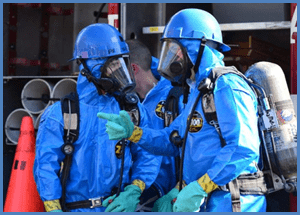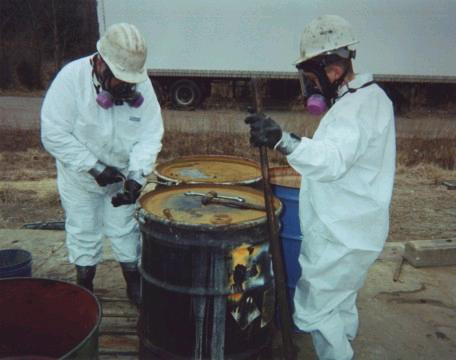COURSE OVERVIEW
HE0965 : Scaffolding Inspection Training

OVERVIEW
| COURSE TITLE | : | HE0965 : Scaffolding Inspection Training |
| COURSE DATE | : | Dec 22 - Dec 26 2024 |
| DURATION | : | 5 Days |
| INSTRUCTOR | : | Mr. Raymond Tegman |
| VENUE | : | Muscat, Oman |
| COURSE FEE | : | $ 5500 |
| Register For Course Outline | ||
OTHER SCHEDULED DATES
| Date | : | Apr 21 - Apr 25 2024 (5 Days) | Location | : | Dubai, UAE | Classroom Fee (US$) | : | $ 5500 | Course Info |
| Date | : | Jul 07 - Jul 11 2024 (5 Days) | Location | : | Al Khobar, KSA | Classroom Fee (US$) | : | $ 5500 | Course Info |
| Date | : | Aug 18 - Aug 22 2024 (5 Days) | Location | : | Dubai, UAE | Classroom Fee (US$) | : | $ 5500 | Course Info |
| Date | : | Oct 14 - Oct 18 2024 (5 Days) | Location | : | Abu Dhabi, UAE | Classroom Fee (US$) | : | $ 5500 | Course Info |
| Date | : | Jan 12 - Jan 16 2025 (5 Days) | Location | : | Doha, Qatar | Classroom Fee (US$) | : | $ 6000 | Course Info |
| Date | : | Apr 20 - Apr 24 2025 (5 Days) | Location | : | Dubai, UAE | Classroom Fee (US$) | : | $ 5500 | Course Info |
| Date | : | Jul 06 - Jul 10 2025 (5 Days) | Location | : | Al Khobar, KSA | Classroom Fee (US$) | : | $ 5500 | Course Info |
| Date | : | Oct 13 - Oct 17 2025 (5 Days) | Location | : | Abu Dhabi, UAE | Classroom Fee (US$) | : | $ 5500 | Course Info |
Course Description
Scaffolding is widely used during construction and maintenance activities. In its simplest form, a scaffold is any temporary elevated or suspended work surface used to support manpower, equipment and/or materials. The construction industry gives rise to very intensive use of scaffolds. 65% of the construction manpower are regularly involved in the use of scaffolds and other elevated work platforms. These scaffolds are moved and/or dismantled more frequently and are used under more adverse conditions. Therefore, scaffolds result in hundreds of deaths and thousands of injuries per year, which costs the construction industry worldwide around US$900 million dollars. The consequences of such accidents cost the international economy over US$15 billion dollars per year. Documented injury accidents are only a small portion of the total number of accidents and costs. The goal of the construction industry is to assist in preventing even a minor part of this injury, death, and property damage.
The course is designed to provide a comprehensive and up-to-date overview of the materials, methods, standards, safety regulations, planning, selection, installation, inspection and stability of Scaffolding and Aerial Work Platforms. It covers American and British Regulations & Industry Standards; Accidents & Fatality Statistics; Pre-planning (Selection & Use); Training Requirements; Materials & Methods; Fall Protection; Electrocution on Scaffolds; Emergency Response; Supported Scaffolds; Tubular Welded-Frame Scaffolds (Mason’s Frames); Tube & Coupler Scaffolding; Wood Pole Scaffolds; Pump Jack & Ladder Jack Scaffolds; Job-Manufactured Scaffolds; Form Scaffolds; Suspended Scaffolds; Single-Point & Two-Point Suspension Scaffolds; Multiple Point Suspension Scaffolds; Adjustable Multi-point Suspension Scaffolds (Stone Setters – Mason’s); Outrigger Types Scaffolding; manually Propelled Rolling Towers; Aerial Work Platforms; Inspection Procedures; Stairways; Ladders; and Safety Plans & Procedures.
The course will present the latest innovations and practices in the industry, including, not only scaffolds, but aerial lift devices, ladders, etc, as they increase in popularity. It is also intended to provide current information to the experienced and new user, erector, and designer of scaffold systems and aerial work platforms of the regulatory requirements, industry standards, and innovations in the industry, as well as to provide examples of the most common failures which result in injury and death to construction workers everyday.
The last day of the course will be a site visit to one of the scaffolding companies in UAE, where participants will practice setting-up a scaffolding yard and boom lift equipment as well as assembling small scaffolding structures.
Course Objectives
Upon the successful completion of this course, each participant will be able
link to course overview PDF
The course is designed to provide a comprehensive and up-to-date overview of the materials, methods, standards, safety regulations, planning, selection, installation, inspection and stability of Scaffolding and Aerial Work Platforms. It covers American and British Regulations & Industry Standards; Accidents & Fatality Statistics; Pre-planning (Selection & Use); Training Requirements; Materials & Methods; Fall Protection; Electrocution on Scaffolds; Emergency Response; Supported Scaffolds; Tubular Welded-Frame Scaffolds (Mason’s Frames); Tube & Coupler Scaffolding; Wood Pole Scaffolds; Pump Jack & Ladder Jack Scaffolds; Job-Manufactured Scaffolds; Form Scaffolds; Suspended Scaffolds; Single-Point & Two-Point Suspension Scaffolds; Multiple Point Suspension Scaffolds; Adjustable Multi-point Suspension Scaffolds (Stone Setters – Mason’s); Outrigger Types Scaffolding; manually Propelled Rolling Towers; Aerial Work Platforms; Inspection Procedures; Stairways; Ladders; and Safety Plans & Procedures.
The course will present the latest innovations and practices in the industry, including, not only scaffolds, but aerial lift devices, ladders, etc, as they increase in popularity. It is also intended to provide current information to the experienced and new user, erector, and designer of scaffold systems and aerial work platforms of the regulatory requirements, industry standards, and innovations in the industry, as well as to provide examples of the most common failures which result in injury and death to construction workers everyday.
The last day of the course will be a site visit to one of the scaffolding companies in UAE, where participants will practice setting-up a scaffolding yard and boom lift equipment as well as assembling small scaffolding structures.
Course Objectives
Upon the successful completion of this course, each participant will be able
TRAINING METHODOLOGY
This interactive training course includes the following training methodologies:
LecturesWorkshops & Work Presentations
Case Studies & Practical Exercises
Videos, Software & Simulators
In an unlikely event, the course instructor may modify the above training methodology for technical reasons.
VIRTUAL TRAINING (IF APPLICABLE)
If this course is delivered online as a Virtual Training, the following limitations will be applicable:
| Certificates | : | Only soft copy certificates will be issued |
| Training Materials | : | Only soft copy materials will be issued |
| Training Methodology | : | 80% theory, 20% practical |
| Training Program | : | 4 hours per day, from 09:30 to 13:30 |
RELATED COURSES

HE1192 : Certified Fire Protection Specialist (NFPA-CFPS Exam Preparation Training)
- Date: Dec 22 - Dec 26 / 3 Days
- Location: Doha, Qatar
- Course Details Register

HE0015(QP1) : Storage, Handling & Safe Use of Chemicals & Hazardous Materials
- Date: Dec 22 - Dec 26 / 3 Days
- Location: Al Khobar, KSA
- Course Details Register

HE0749 : API-780: Security Risk Assessment Methodology for the Petroleum & Petrochemical Industries
- Date: Dec 22 - Dec 26 / 3 Days
- Location: Dubai, UAE
- Course Details Register

HE0746 : Security Management, Planning and Asset Protection with Integrated Security Solutions
- Date: Dec 22 - Dec 26 / 3 Days
- Location: Dubai, UAE
- Course Details Register
